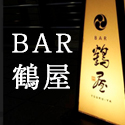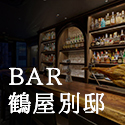[酒処えのき]渋谷のんべえ横丁 東京、渋谷で美味しいお酒とワイン。
- お勧めのお店
-

- えのき・応援サイト
-

株式会社O-NINE
えのきウェブサイト(当サイト)を運営しています。 -

田村セツコ -


ワシントンDC 大助 歌川氏のお店
- 2月
- 日
- 月
- 火
- 水
- 木
- 金
- 土
- 1
- 2
- 3
- 4
- 5
- 6
- 7
- 8
- 9
- 10
- 11
- 12
- 13
- 14
- 15
- 16
- 17
- 18
- 19
- 20
- 21
- 22
- 23
- 24
- 25
- 26
- 27
- 28
- 3月
- 日
- 月
- 火
- 水
- 木
- 金
- 土
- 1
- 2
- 3
- 4
- 5
- 6
- 7
- 8
- 9
- 10
- 11
- 12
- 13
- 14
- 15
- 16
- 17
- 18
- 19
- 20
- 21
- 22
- 23
- 24
- 25
- 26
- 27
- 28
- 29
- 30
- 31
- 4月
- 日
- 月
- 火
- 水
- 木
- 金
- 土
- 1
- 2
- 3
- 4
- 5
- 6
- 7
- 8
- 9
- 10
- 11
- 12
- 13
- 14
- 15
- 16
- 17
- 18
- 19
- 20
- 21
- 22
- 23
- 24
- 25
- 26
- 27
- 28
- 29
- 30
定休日:日・祝祭日

|
ホーム |
渋谷のんべえ横町〔酒処えのき〕物語 ・その1
|
 渋谷、のんべえ横町、とても小さなお店で、週6夜、 渋谷、のんべえ横町、とても小さなお店で、週6夜、土井チズルさんは美味しい料理を盛り付け、うまいお酒と賢明なアドバイスを提供している。 彼女のバー、酒処えのきは、東京、渋谷の大通りから少し入った、赤い提灯が燈る、 路地に立ち並ぶ約40軒のお店の中の1軒である。 一度に8人のお客さんが椅子に座れば、店内は満席となる。 定員オーバーになるとハシゴのような階段を上って、屋根裏の個室で飲むこともできるが、 その際は、飲み物と料理は自分で運ぶのである。 「『ねえ、ママ、できた?』2階から呼んでいるんですよ。」と今回、私の友人であるバンクーバー在住の 料理記者兼アナウンサーと私のために通訳をしてくれた常連客の本田亮氏は説明してくれた。 私達がお店に着いたのは午後7時、土井さんの小さなお店に座っていたのは男性客が一人であった。他のお店はにぎやかなので、私達は少し不安になった。 しかし、夜もふけてくると土井さんのお店は、午後5時から深夜まで営業しているが、満席になった。 会社は好調、日本酒と焼酎が充実していて、バーの食事は実に美味しいのである。 BGMには、フランクシナトラが流れている。 「彼女は日本料理を作っていますが、西洋音楽、ジャズが好きなんですよ。」と投資顧問会社に勤務している本田氏は語る。 夜の営業中、お客の中にはIBM社勤務の男性が二人、旅行会社を経営している社長が一人。 そして、二人の女性客が入って来た。 一人は広告関連に勤めていて、もう一人はちょうど日本で公演中の英国舞踏家マシューボーンの同性愛的な魅力の「白鳥の湖」を見に行ってきたと公演のパンフレットを見せてくれた。 黒のタートルネックのセーターを着て、赤のエプロン姿、髪はゴムヒモで結び、 土井さんはとても小さなスペースのバーの中で仕事をしているので振り向けばどこにでも手が届く。 カウンターの上には新鮮な旬の食材や魚が氷の上に並べられている。 グラスやお皿は壁に作られた専用棚に収まっていた。 彼女は以前、日本でも最大規模の衣料メーカー勤務でマーケティング担当であったが、 20年前、彼女はバーを開くために脱サラした。 「最初の年は、私は素人でしたよ。」と、現在50歳になる土井さんは言う。 「でも口コミでお客さんが増えました。来てくれるお客様に満足していただけるように心がけています。」 メニューは無いが彼女を信頼しお薦め料理をいただく。 最初に出てきたのは、シソの葉と少量のサラダが付いたサバのサシミであった。 記者がこれまで食べた料理の中でも最も美味しい料理であった。 次に出された料理は、ジュージューと熱いお皿に盛り付けられたポテトのコロッケ、 素材は、バースニップに似た長細い塊茎で、日本の山芋を使って、カツオ節と青ネギで飾られていた。 次の2品は、えのきの創作料理である。レンコンとチーズである。 私達は気前よく、本田氏と他のお客さんにも分けてあげて一緒にいただいた。 友人の料理記者は、トマトサラダが食べたいと懇願する。 日本国産で甘くて美味しそうである、日本の自然の生姜、ミョウガと一緒に盛り付けられている。 そして、次は、とても優美で、レアで仕上げた、ニュージーランド産のラムである。 お勘定は、お酒とワインを含めて、二人で約80ドル(8000円)であった。 最初のドリンクはお店からの差し入れで、次はバーの棚に平にキープされている32本の焼酎ボトルから 常連客さんのその内のボトル1本からの差し入れであった。 
本田氏は、1950年初期に渋谷で誕生したこのようなバーの中には、よそから来た人には、ぼるお店もあるから気をつけないといけないと忠告する。 ほとんどの来客は紹介による。 「最初が肝心ですね。」と彼は言う。 東京に関するオンラインガイドによると、このようなバーの女性経営者をママさんと呼んでいる。 彼女たちは、お客さんを励ましたり叱ったりとユニークな人種である。 少しでも日本語を話せるとぼられる確立は低いかもしれない。 ただし、保証はしないが。 もし、彼女の店が満席なら、土井さんはヤキトリの「鳥徳」をお薦めしている。 そこは、午後5時を過ぎると、お客さんが並んで待っている。vまた、となりのバー野川もお薦めだ。 土井さんの常連客の多くは、日本の慣行に従って夕食に帰宅しないで途中で飲む働く男性である。 彼らは奥さんをえのきに連れて来ることは考えないだろう。 お客さんの二人がほのめかしたのは、店を出ると天国の臭いがするそうだ。 (渋谷には休憩と一泊を商売にしている空想的施設、ラブホテルがかなりある。) 多くのお客さんは、土井さんに、自分のお母さんに告白するような接し方をしているように見える。 「彼女はお客さんに説教しますし、時々彼女の助言に感謝する電話を掛けて来ますよ。」 と10代の子供が二人いる40歳半ばのハンサムな本田氏は言う。 彼は言うまでもなく、つらい話をママさんに聞いてもらったのだと思う。 土井さんには約4千人のお客さんがいる。 彼女は休暇でお客さんの一人が家を持っているシシリア島に行った時の写真を携帯電話カメラで見せてくれた。 「ここのお客さんの質はかなり高いですよ。」と本田氏は言う。 「とても静かで、とても大人です。」 . * のんべえ横町のようなバー街は、東京には他にもある。 新宿駅の近くの「ゴールデン街」や「しょんべん横町」 があり若年層相手と思われる。 銀座・有楽町駅には 「ガード下」がある。 えのき物語・その1 寄稿者 エレン・ムーハウス (トロントスター新聞) 
Six nights a week, Chizuru Doi dishes out great food, good drink and sage advice in her tiny restaurant in Nombeiyokocho or “Drunkards Alley”. Her bar, Osakedokoro Enoki, is one of 41 in this network of narrow laneways, illuminated by red lanterns, just off the big commercial streets in Tokyo’s Shibuya district. She can accommodate eight people at a time on stools downstairs. An overflow crowd can climb the ladder-like steps to the attic but have to pick up their own food and drink. “They call down, ‘Hey, mama, is it ready?” says Akira Honda, a regular who acted as interpreter for me and my friend, a Vancouver food writer and broadcaster. When we arrived around 7 p.m., only one man was seated in Doi’s tiny establishment. Other places were busy, and we were a little concerned. But by late evening, Doi’s place, which is open from 5 p.m. to midnight, has filled up: the company is good; the saki and shochu is flowing, and the bar food is superb. In the background, Frank Sinatra sings. “She serves Japanese food, but she likes Western music, like jazz,” explains Honda, who works for a firm specializing in corporate investments. During the evening two men from IBM are among the customers, as well as the president of a travel company. Two women drop by, one who works in public relations, and another who leafs through the program from British choreographer Matthew Bourne’s homoerotic version of Swan Lake, which had just opened in Tokyo. Dressed in a black turtle neck sweater and red apron, her hair pulled back with an elastic, Doi can reach everything in her tiny space behind the bar by just turning around. Fresh produce and fish sit on ice on the counter. Glasses and plates are on shelves lining the wall. She used to work for Japan’s biggest clothing manufacturers in the marketing department, but jumped ship 20 years ago to open her bar. “In the first years, I was an amateur,” says Doi, who’s now in her mid 50s, “but the numbers increased by word of mouth. I try to make every customer satisfied. ”There’s no menu; we trust her to choose. First comes mackerel sashimi in a small salad with shiso leaf, the best the food writer had ever tasted. That was followed by a sizzling hot plate of potato croquet, made with Japanese mountain potatoes, a long tuber similar to a parsnip, garnished with bonito flakes and green onions. Next, two rounds of a unique Enoki creation: lotus root and cheese. We shared the generous servings with Honda and others. The food writer was craving a tomato salad – produce in Japan looks luscious; it came with myoga, wild Japanese ginger. After that: tasty and dainty New Zealand lamb chops grilled rare. The bill, which included saki and wine, came to 8,000 yen, or $100 for two. One round of drinks was on the house; another, of a Japanese spirit called shochu, was offered by a regular from his own bottle, one of 32 stored flat on a shelf above the bar. Honda cautioned strangers about dropping into some of these bars, which were established in Shibuya in the early 1950s; you could get taken, he says. Most people come with a referral. “It’s important the first time,” he says. An on-line guide to Tokyo describes the women proprietors of these bars, called mama-san, as “a unique breed who both charm and terrorize their customers, and who are less likely to rip you off if you speak some Japanese (but that's no guarantee)” If her place is filled, Doi recommends Torikuku Yakitori, a grilled chicken place, where people are lined up after 5 p.m., and a neighbouring bar called Nogawa. Many of Doi’s clientele are working men who follow a common Japanese practice of not going home to their families for dinner. Nor would they think of bringing their spouses to Enoki. Two of them drop hints that they plan to savour heaven after they leave. (Shibuya has a healthy share of love hotels, an often fanciful Japanese institution that caters to short-term stays, as well as overnights.) Many customers appear to treat Doi as mother confessor. “She preaches to them, and sometimes people call and say thank you for the advice,” says Honda, a handsome man in his mid-40s with two teenage children. He has obviously shared some of his own heartache with mama-san. Doi estimates she has built up a clientele of about 4,000. She shows off a cell phone photo of Sicily, where one of her customers has a house and she went for her vacation. “The quality of clientele is very high,” says Honda. “It’s very quiet, very adult here..” *Bars similar to those in Nonbei Yokocho are located elsewhere in Toyko. Shonben Yokocho, translated inelegantly as “Piss alley” and Golden Gai at the Shinjuku station, seem to cater to a younger crowd. At Yurakucho station, in Ginza, there’s Gadoshita, meaning under the tracks. Article by Ms. Ellen Moorhouse The Tront Star |



